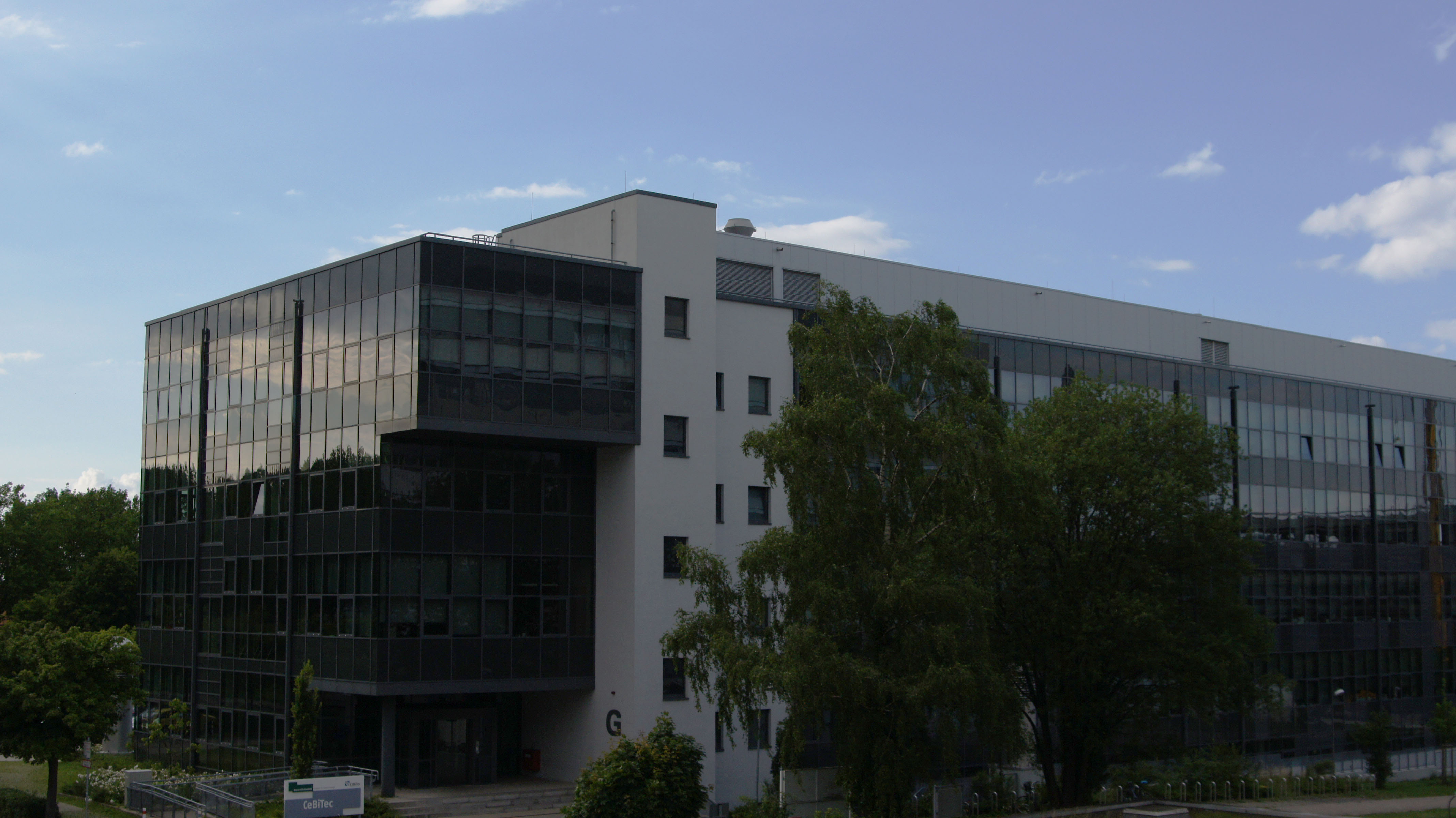Team:Bielefeld-Germany/Bielefeld-University
From 2012.igem.org
(→The University) |
(→The University) |
||
| (29 intermediate revisions not shown) | |||
| Line 1: | Line 1: | ||
{{Team:Bielefeld/Head}} | {{Team:Bielefeld/Head}} | ||
| - | == | + | <html> |
| - | + | <div id=page-title> | |
| + | <span id=page-title-text> | ||
| + | Home is where our heart is | ||
| + | </span> | ||
| + | </div> | ||
| + | </html> | ||
| - | = | + | <html> |
| - | + | <div id="grey_bg"> | |
| + | </html> | ||
| - | [[File: | + | <div style="text-align:justify;"> |
| + | =Bielefeld= | ||
| + | The city is localized in North Rhine-Westphalia on the fringes of the Teutoburg Forest. The towns’ landmark is the Sparrenburg which is about 800 years old. A well-known company is the food giant Dr. Oetker whose frozen pizzas are famous. | ||
| + | |||
| + | =The University= | ||
| + | [[File:Bielefeld2012_BiUniversity2.jpg|250px|thumb|right|University]] | ||
| + | In 2009, Bielefeld University celebrated its 40th anniversary and is thus a relatively young University. Among its, 18500 students, 1433 are international students from all over the world. All 13 faculties find their place in one huge building, which is a big advantage for the interdisciplinary research. | ||
| + | In 2011, the construction of a replacement building started. It is planned that all faculties, one after the other, would move to the new building, during which the corresponding part of the main building would be reconstructed. Furthermore, the [http://www.uni-bielefeld.de/bau/campus/plan.html campus] is extended by another two buildings, a research center for interactive intelligent systems and a new building for the university of applied sciences. The entire project is planned to be completed in 2025. | ||
| + | |||
| + | |||
| + | |||
| + | |||
| + | [[File:Bielefeld2012 CeBiTec.jpg|250px|thumb|left|CeBiTec]] | ||
| + | The iGEM laboratory is located in the building of Center for Biotechnology ([http://www.cebitec.uni-bielefeld.de/ CeBiTec]) which was founded in 1998 and consists of four institutes: | ||
| + | *Institute for Bioinformatics | ||
| + | *Institute for Genome Research and Systems Biology | ||
| + | *Institute for Biophysics and Nanoscience | ||
| + | *Institute for Biochemistry and Bioengineering | ||
| + | |||
| + | |||
| + | Novel technologies allow high-level research with the potential for unique international collaborations. Especially the setups for second generation sequencing, such as 454 Pyrosequencing and Illumina, are worth mentioning. Furthermore, high level research is performed in the field of transcriptomics and metabolomics (some applied techniques are GC-MS-MS, MALDI-TOF-MS, qTOF-MS). | ||
| + | |||
| + | </div> | ||
| + | |||
| + | |||
| + | <html> | ||
| + | </div> | ||
| + | </html> | ||
| + | |||
| + | {{Team:Bielefeld/Sponsoren}} | ||
Latest revision as of 22:24, 2 December 2012
Bielefeld
The city is localized in North Rhine-Westphalia on the fringes of the Teutoburg Forest. The towns’ landmark is the Sparrenburg which is about 800 years old. A well-known company is the food giant Dr. Oetker whose frozen pizzas are famous.
The University
In 2009, Bielefeld University celebrated its 40th anniversary and is thus a relatively young University. Among its, 18500 students, 1433 are international students from all over the world. All 13 faculties find their place in one huge building, which is a big advantage for the interdisciplinary research. In 2011, the construction of a replacement building started. It is planned that all faculties, one after the other, would move to the new building, during which the corresponding part of the main building would be reconstructed. Furthermore, the [http://www.uni-bielefeld.de/bau/campus/plan.html campus] is extended by another two buildings, a research center for interactive intelligent systems and a new building for the university of applied sciences. The entire project is planned to be completed in 2025.
The iGEM laboratory is located in the building of Center for Biotechnology ([http://www.cebitec.uni-bielefeld.de/ CeBiTec]) which was founded in 1998 and consists of four institutes:
- Institute for Bioinformatics
- Institute for Genome Research and Systems Biology
- Institute for Biophysics and Nanoscience
- Institute for Biochemistry and Bioengineering
Novel technologies allow high-level research with the potential for unique international collaborations. Especially the setups for second generation sequencing, such as 454 Pyrosequencing and Illumina, are worth mentioning. Furthermore, high level research is performed in the field of transcriptomics and metabolomics (some applied techniques are GC-MS-MS, MALDI-TOF-MS, qTOF-MS).
| 55px | | | | | | | | | | |
 "
"







